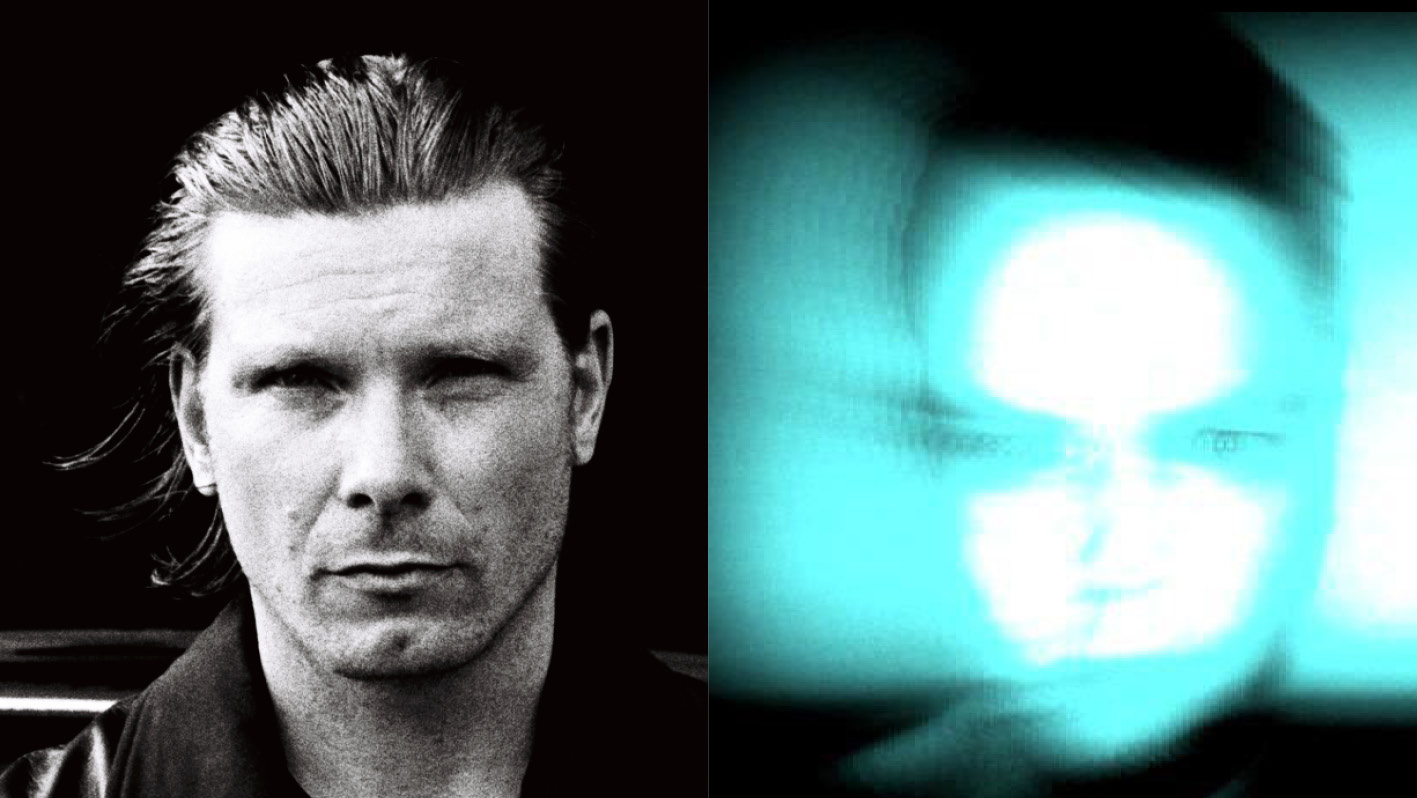Marcel Dettmann & Vril (Fotos: Sven Marquardt/ Vril)
Vril and Marcel Dettmann have known each other for a long time. Last spring, however, was the first time they worked together. The two joined forces for Vril’s fourth album, which was released on Dettmann’s Bad Manners imprint. In May, we virtually met the two producers via Zoom and talked about their friendship. Vril joined us from his studio in Hannover while Marcel Dettmann escaped the family hustle in his Berlin flat.
Our writer, Julian Eichelberger, wanted to know from both of them how they met, what their collaboration on the Bad Manners release looks like and how they see Corona’s impact on the scene. We also learned what Beethoven might have thought about Aphex Twin and how to stay on the right track as an upcoming artist during these difficult times.
Vril, Marcel Dettmann has previously introduced you on his „Conducted” CD-mix for Music Man Records as well as other selected compilations. How do you two meet and when did you start exchanging music?
Marcel Dettmann: That is a very good question. (laughs) Well, I was working at Hardwax back in 2010 when Vril’s first record (1-4) came in. I remember that I was a fan right away, so that’s why it was included in the mix later. We then started running into each other more often, but we only had intense conversations at festivals. The first time probably in the Antwerp area together with Sven Väth.
Vril: Exactly. We’ve met a few times while travelling throughout the last couple of years, but the very first ‘official’ meeting was at my second Berghain-gig. We exchanged one or two words, but I didn’t want to disturb Marcel while he was playing. But then we had that proper conversation. Three or four years ago, I sent Marcel some tracks and while I had already forgotten about it, he answered at some point and said: „Let’s meet, we have to talk!“ Then we went through a playlist filled with my tracks that he had created. In 2019, we were met up again in Tokyo when I went to see him at one of his sets. There, Marcel played some tracks from my album, which he then continued for the rest of the year. That’s when I realised that he seemed to be serious about it. (laughs)
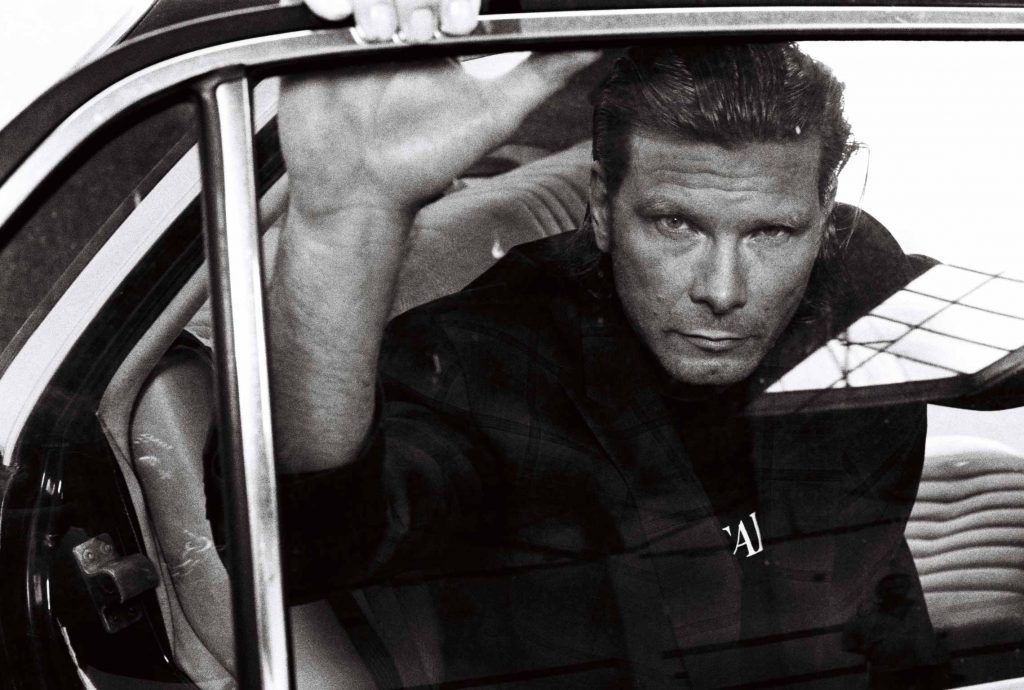
What’s it like not touring and being home all the time? Do you feel like you have to be creative right now, or is it ok to do nothing? Marcel, you have children, how do you cope with that?
MD: It’s a special challenge. But this year is probably one of those years you look back on at some point both from a critical and positive perspective. I hadn’t spent so much time with my family since my daughter was born. But it’s great to get to know my children from a completely different side. Usually, I’m just the father who takes them to daycare or school during the week, picks them up, prepares dinner and then it’s already bedtime. Because I’m always on the road on weekends that’s it, unfortunately. Whereas right now, we order a seasonal vegetable basket once a week and then I plan what to make with that. I’ve come to notice that especially when having lunch together, that’s it a new thing I don’t know at all, as the kids usually eat at school and I’m usually spending my weekends in hotels ordering room service. It’s amazing to have the time for that now.
Do you get to work on music and produce?
MD: Yes, and I’m enjoying it, too. I use my time to think about concepts, new projects and in general what might make sense for the future. And now and then, I also do a remix.
How about you, Vril?
V: I’m doing very well. I get up either in the morning or at noon, ride my bike to the forest or park and then maybe read a book. I think it’s a good thing that this whole travel and gig carousel just stopped. I’ve been on the road on weekends for almost ten years now. Now and then I was already thinking that it would be quite nice to slow down for a bit. But I still miss playing live in front of people and being on the move globally.
Back to music – Vril, you recently released a double EP on Marcel Dettmann’s 2019 label Bad Manners. How did that come to life? The EP was also a vinyl-release, did the pandemic have an impact on that?
„Where do we come to if there is no more music and no more releases? Something must continue to happen.”
Marcel Dettmann
V: Of course, this record was designed to be for DJs, dancing and festivals, but that isn’t possible now. But it then made me realise pretty early on that music also works outside the dancefloor. I have way more far-reaching thoughts goals producing than compatibility. So far, it went well, especially when I noticed the increase in streaming. Of course, I could live out the record in clubs and as part of my live-sets, but maybe I can make up for that when the situation has calmed down a bit.
MD: We also briefly discussed if it makes sense to postpone releases. I then distinctly decided that we won’t push anything back. I mean, where do we come to if there is no more music and no more releases. Something must continue to happen. Sure, Vril’s record is definitely DJ-material and I have played every track regularly in my sets, which sets it apart as a club record for me, but I can listen to it as well, it’s really fun!
How did the release process work? Vril already mentioned that you got together to go through a playlist. How was the cooperation?
V: I usually work on an album with some kind of concept, but this time we talked a lot about the final version and made some decisions together. Without Marcel, I wouldn’t have been able to make this compilation. Now, I’m very pleased with the final result.
MD: That’s also what I love about my label. I don’t solely want to curate the music, I want to take part in the whole process. I find that very exciting. With Vril, there were almost 30 tracks – they were all there and they were all great. So, I said to him: “Why don’t you send me everything, doesn’t matter if it’s experimental, ambient, house, electro, techno. I just want to hear everything, so that I can put together a good package”. In the end, we sent ideas back and forth, shortened things again or slightly tweaked them. We found a good way to work together.
How did the artwork come apart?
V: Bad Manners worked with the artists collective, 200 kilos. I’ve sent them some sort of a mood board in the style of a retro-futuristic Russian artist from the ‘60s in advance. They then got back to me with something that had absolutely nothing to do with my suggestion. (laughs) What came back was this glitchy Scirocco car. They probably first warped it on the computer with artefacts and then painted it by hand with this digital distortion. It’s kind of like playing a recorded symphony from an orchestra from a CD while adding additional jumps and then playing them back with the same orchestra. I liked that and I’ve never seen anything like it before. I’m also a fan of the ‘80s and with the Scirocco from back then, I realised pretty much straight away how well it fits. So, at this point, many thanks also to Claudio!
MD: I’m also a big fan of science fiction from the ‘70s and ‘80s, that was my childhood and youth. I think it’s very important to adapt these kinds of things and then making them look current. I believe that the artwork does exactly that. 200 Kilos did a great job.
The last track on the record, „Free World Order”, is stylistically a bit out of tune, what’s that about?
MD: For me, it’s a disco track.
V: Actually, I had sent Marcel more techno tracks and then he asked me at some point if I had anything more disco-like. At first, I was slightly surprised why he came up with that. But then, he reminded me and I said: „Of course, I have a disco track!” When I think about it now, I realise again how good the cooperation worked out in the end.
MD: It was just totally fun. It’s great when you don’t have to tell an artist what to do all the time. Something just comes along and you like it. There is also this saying: Talking about music is like dancing to architecture.
V: We changed some structural details of some songs together. A little bit, in the beginning, things in the mixdown or some other little tweaks.
M: In your case, those were mainly cuts because the tracks were nine minutes long. Can’t you shorten them to five minutes? (both laugh)
„It was always important for me to play in small clubs as well. That’s where I come from. I’m a classic club-DJ, that’s where I grew up. I always thought it was important to have build up a relationship and contact with the audience.”
Marcel Dettmann
There is also a music video for the track „Scalar”. How was that created and what were the thoughts and ideas behind it?
V: It shouldn’t be a video where you just cut audio-visual noises one after the other but have a clear vision. First, I sent the label some keywords, explanations and ideas what I could imagine in terms of the video’s content and mood. Then I got a PDF from Lewis Lloyd, the director. He expanded these ideas perfectly and brought them into shape. That’s when I knew he was on the same wavelength. We even met at my studio and recorded a few clips. The further it went, the more I saw a kind of overarching theme in this video that might as well be defined as the „hybrids of industrialized humanity.” Man creates machines and algorithms that since long out of his control. This is, amongst other things, also shines a light on issues such as environmental pollution, or the products and problems of progressive digitalization. New difficulties are constantly emerging and globally, attempts are being made to create more programs, machines and algorithms to solve those exact problems. I became more and more aware of this during the production phase of the video and also through the book Metaphysics At Present (Merve Verlag) by Armen Avanessian, which I read at the same time (thanks to Mady). The video starts accordingly turbulent and right at the end of the video it slows down a bit with the pictures pointing out the real potential of the human being probably lies more in themselves, in the expansion of the mind and not in a next machine, artificial intelligence or another algorithm.
What do you think is especially important in this situation to remain interesting in the scene as an artist?
MD: Everyone has to decide that for themselves. I’m more the „less is more”- kind of guy. It’s better to focus on the essentials and think about what’s important for you. First and foremost, it has to be right for everyone and you have to be able to stand behind it. For me, that’s what label work is all about.
V: I don’t promote myself as a person but rather with my project. I keep my private life very private. I see the strength rather in the releases and their context. That’s why it was perfect for me to release a record with an aesthetic video right away. I can also imagine live streaming, but I don’t know how I would do that exactly yet. These streams are a good thing, but unfortunately, they often seem one-dimensional.
Would you show yourself in a stream?
V: I would have to come up with something. I’m not that completely anonymous anymore, having been on the road for quite a while.
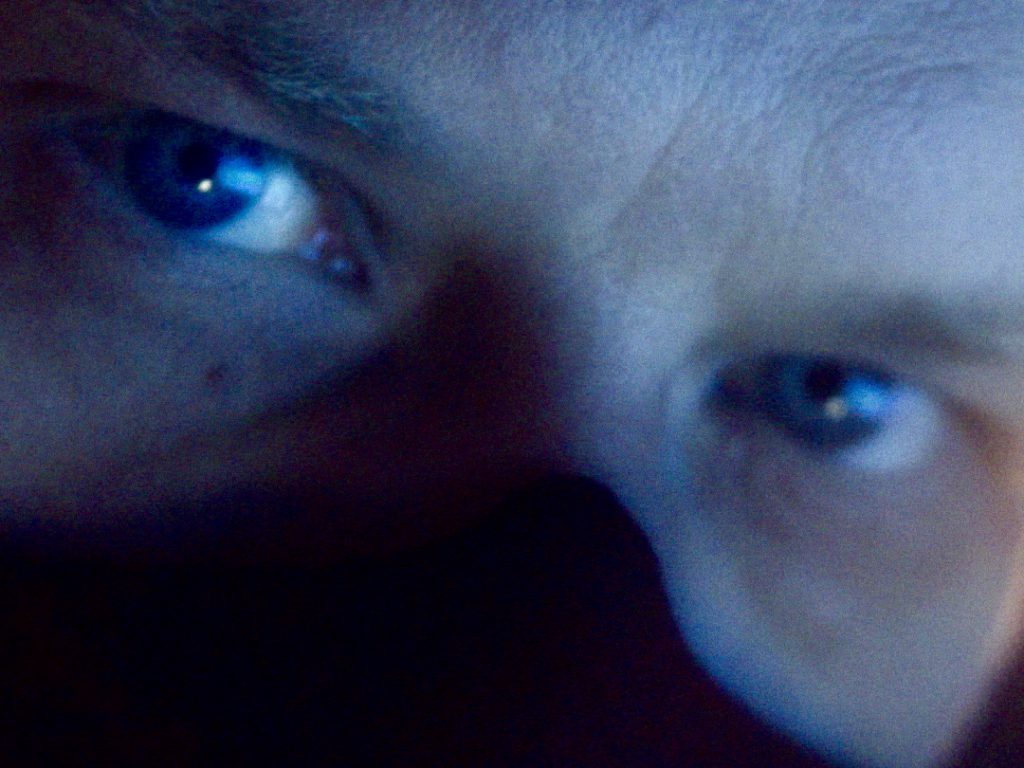
What’s especially important to you in your music?
V: My concept of keeping myself more in the background is very influenced by the early 90s. But in the end, it is also due to my first records. For the listeners and me, it was probably more about the music and the vibe of the audience. There was no information about myself anyway. I keep up with this approach. That’s why I’m not that active on Instagram or other social platforms, even in times like now.
MD: Each to their own, I guess. As long as you don’t pretend, remain real and keep entertaining, I think that’s enough and therefore it doesn’t matter how much you post. But of course, first of all, security comes first, you have to keep your feet still, as hard as it is. You shouldn’t start doing things now that you might end up regretting at some point. You have to let the situation guide you.
If someone like Beethoven were to hear Aphex Twin, he might say: „Oh, madness! That is possible? That’s what I wanted”
Vril
What do you think about live streams? What’s the scene’s reaction from your perspective? And do you feel a sense of solidarity from them?
V: Well I play/played big raves a lot, but even more clubs, which I also like a lot. But the longer the club-culture stands still globally, the more they disappear from the scene, and you will probably never get these areas/locations back again. Around the world, the network is huge. An unbelievable number of people know each other and hold everything together. You can imagine it like countless small ramifications that have been built up over decades and it is exactly these complex connections that are now threatened by the crisis. The bigger events are more likely to remain. They have built themselves up financially over the last few years and can probably just about survive financially. But the damage there is, of course, also immensely high, as I can imagine.
MD: The small club gigs are now cancelled for the first time and the big festival gigs have been postponed for one year. So, naturally, clubs have it more difficult. We all have to make our contribution. It won’t continue the way we stopped, that’s clear to everyone by now. It was always important for me to play in small clubs as well. That’s where I come from. I’m a classic club-DJ, that’s where I grew up. I always thought it was important to have build up a relationship and contact with the audience. For me, it is always a challenge to convince the audience of my kind of music. But I also need this challenge; I miss it right now. I would love to play Vril’s record up and down, but I can’t right now. I could do a stream every week, but you do that once and then it’s enough. For me, streams are good when people can go to a club afterwards.
V: Streams don’t have that much potential, I think. In the long run, streams can’t replace the real experience.
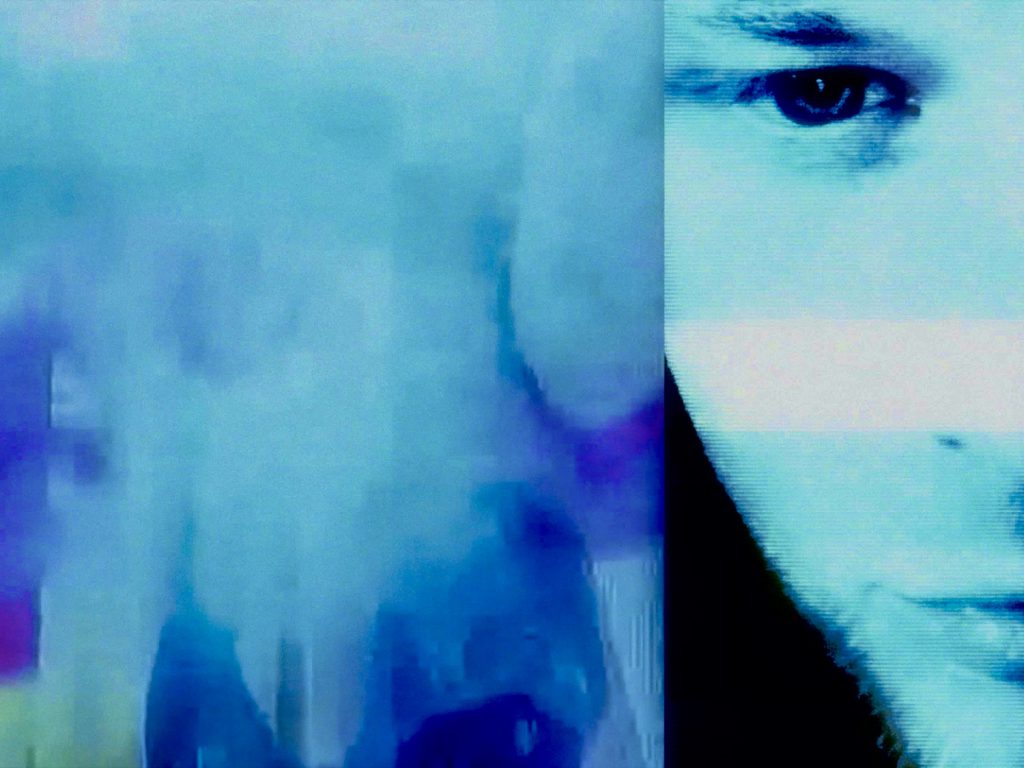
What inspires you most to stay tuned? And do you have role models?
MD: What inspires me the most is the fun I still have in everything and the passion. There is nothing else for me, it’s quite simple.
V: One of the things that motivate me is that I can always make a new release that doesn’t have to be similar to the previous one. I think it’s great that the people who follow my music go along with it. Many thanks to you!
MD: It’s funny that you say that because that’s what I think about my music. That’s interesting.
V: But maybe a lot of musicians think that too, don’t you think?
„I can generally only recommend to just keep going if that’s what you want to do.”
Vril
MD: But you have your distinct note in it that one can always hear, no matter what direction the record’s gone.
V: The record goes a little bit back to the beginnings and has again this club driven aspect just like my early releases. In between, I also had releases that went a different direction, which makes it way more interesting for me in the long run. As a contrast, after almost two years I’m soon releasing a new podcast again. It goes more in an experimental direction and shows how I’m currently experimenting around in the studio. Like many others, I have been enthusiastic about Aphex Twin since the very beginning. I believe that his work will still be interesting and valuable in 100 years. If someone like Beethoven were to hear Aphex Twin, he might say: „Oh, madness! That is possible? That’s what I wanted”. But I mean that rather metaphorically. I’m not usually into elevating people to a superlative, but Aphex Twin is one of those pioneers. And many others for me as well. Kraftwerk, Tangerine Dream, Klaus Schulze, etc.
MD: But now it was about role models in the crisis.
V: In the crisis, I think it is important that every person questions a little bit. Everyone is afraid that his or her loved ones will fall ill. Through these experiences, you will feel more intensely that you are a biological, vulnerable being, that you deal with things more consciously and possibly learn from them. I believe that a role model doesn’t help in a crisis, but that everyone is now encouraged to find their way.
MD: That’s how I see it, too. In principle, you can’t look for a role model because you have to find your way. In your world – how you lead your life and in which constellation.
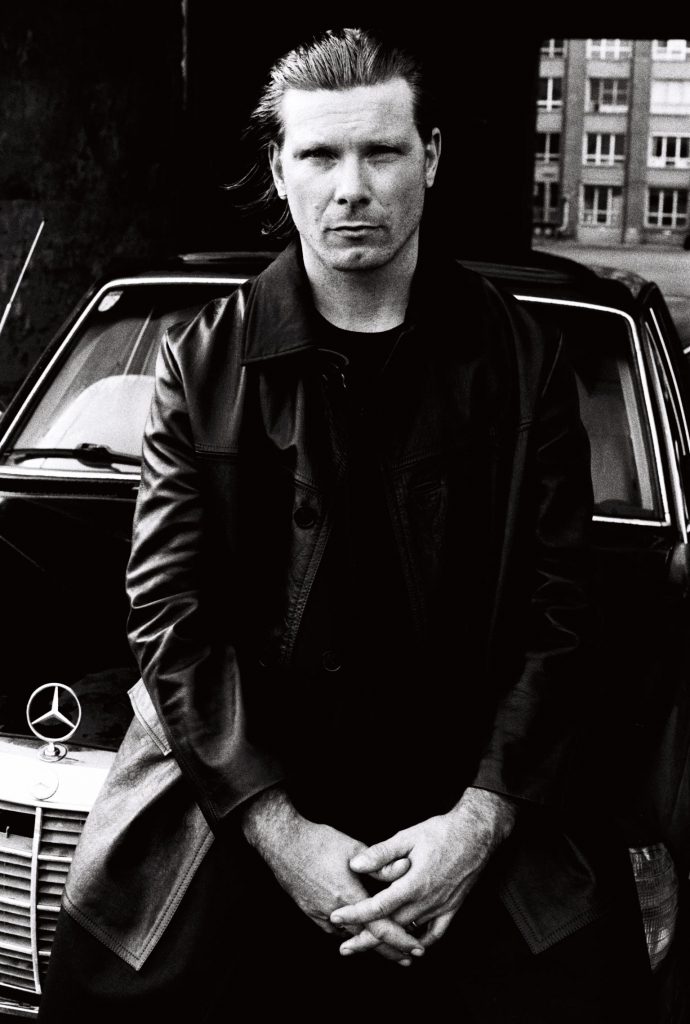
What are your goals for this year?
MD: Thinking, possibly trying out other directions and thinking about what you normally can’t do during your everyday life on tour.
V: I try to use the year to recharge my battery and to exchange ideas with other people; also, especially about this situation. I think you should look very carefully now how you can continue together as a scene. As I said, many of the structures that have been in place in the industry for decades, are currently degenerating. To rebuild all this, all artists*, clubs, etc. have to do a certain amount of extra work.
„When I started playing in Ostgut in ’99, techno was already over for me.”
Marcel Dettmann
You are also role models in the scene – do you feel a responsibility to pass something on? What can you recommend to young artists and what do you advise against?
MD: On my Facebook page I once posted a letter with my family saying: „Everyone stay at home now, then we’ll come back all the stronger”. It meant that we should try to stay healthy and safe for now. For me, this is the best way right now. Hopefully, it won’t take too long. For young artists, the situation is extremely difficult. If I knew what to do now, I would tell you. I think it’s important that you don’t lose the desire to share your music with others – that would be the worst thing. Otherwise, you have to try to be strong and, as best you can, keep on going. Everyone has to stick together.
V: I think that’s probably pretty bitter. Your career is just starting, you have the time of your life, and people are really into the music you make. And then all of a sudden, the Covid-19 crisis puts a sudden halt on all this. Of course, not only for so-called newcomers but for all touring artists. As a musician, you need a lot of endurance. I can generally only recommend to just keep going if that’s what you want to do.
How will the scene change musically? What would a trend mean for you?
MD: When I started playing in Ostgut in ’99, techno was already over for me. I thought that everything has already been said and then it started. And that’s 20 years ago.
V: The problem with trends is that if you’re in line with them when they’re trendy, you can quickly be out of the whole thing again when the trend is over. That’s why it’s maybe quite good to be inspired by the timelessness of electronic music and not necessarily by a temporarily prevailing trend. But please don’t make all this sound too scientific. A dope track is a dope track – that’s it.
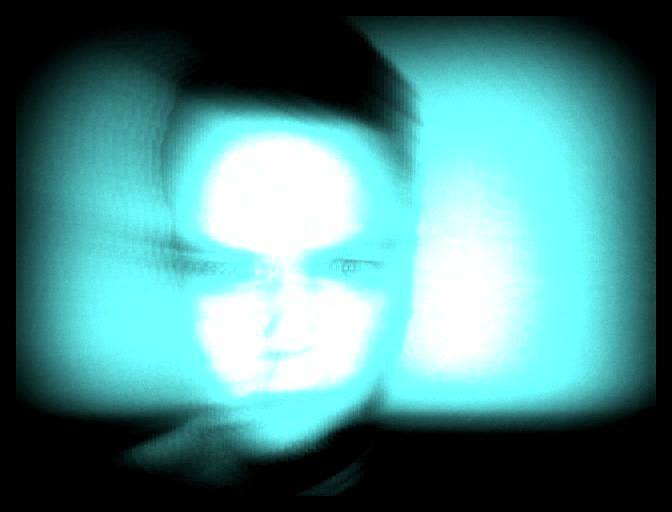
MD: That is exactly the point. If you let yourself be guided by your musical taste, you can’t do much wrong. That’s by far the most important thing. If you think: „I want to be successful now, be part of it and make that kind of music”, then it won’t work. Also, Aphex Twin or Kraftwerk did different things. I could also make a house album that I’d probably never release. I just love electronic music – there is only good and bad music for me, that is my taste. Everyone has developed their taste over the years, but you can’t talk about a certain genre.
„The sound is already inside you, you have to try to listen to yourself.”
Vril
Does that mean that if you listen to a lot of timeless music, like Aphex Twin or Kraftwerk, is it likely to have a similar output?
V: No. Nowadays everybody can just start making music with a laptop and sometimes it comes out with an out-of-this-world result. You don’t have to know all these references to make good music, and you don’t necessarily need this one particular device. The imagination of the individual is the most important thing in my opinion. The sound is already inside you, you have to try to listen to yourself.
MD: The interest for music is aroused, for example when you play at festivals when the kids come to see you for another act and then listen to your music and think: „Wow, what’s that, I have never heard that before. Then maybe they start to get deeper and deeper into that music. I remember when I started with techno back in 1992 after my EBM phase. It started with Trance, Gabber and stuff from Belgium. At some point, I got deeper and deeper into it and discovered Detroit, Chicago House and Techno. This music is still very important for me today.
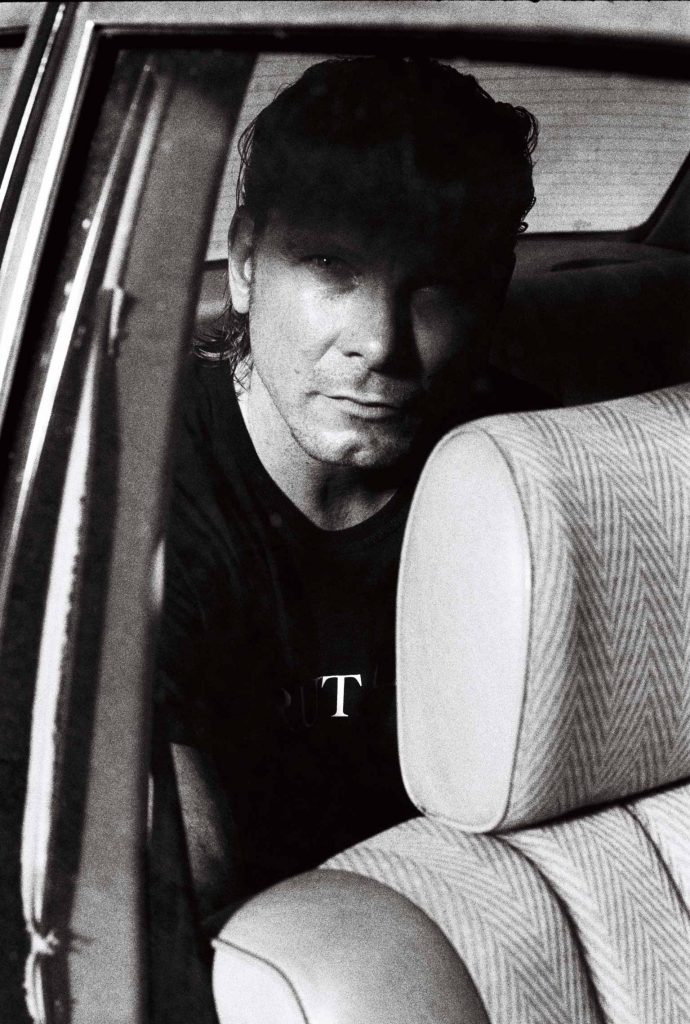
So how can something new develop?
V: If there are parties every weekend and everyone wants to be there somehow, and if the same equipment is often in the studios, there is already the potential that many people will get used to the same sounding, linear techno sound. That’s a shame because that music will only remain interesting at parties because of its diversity. That’s why I think it’s good that the current music is loosening up again and more broken beats or for example old and new, Miami bass-like tracks are to be heard. Whether or not this has happened before is unimportant for me, I welcome this kind of cultural return.
MD: For me it’s like painting by numbers: Somebody does something that works. Then everyone tries to imitate it. That will always be the case, and there will always be people who are good at it. Other people might not be so good at it. Then some people copy things and develop a new genre. That’s just as important. But in the past, it wasn’t so inflationary, you always thought about publishing something three times. Nowadays you simply bang it all out.
V: Today, everybody has this power-to-the-people option. I mean, theoretically, anyone can buy a TR8 or something similar at a relatively affordable price and have an authentic sound. That’s good on the one hand, but on the other hand, it also dilutes the sound because many things sound the same.
